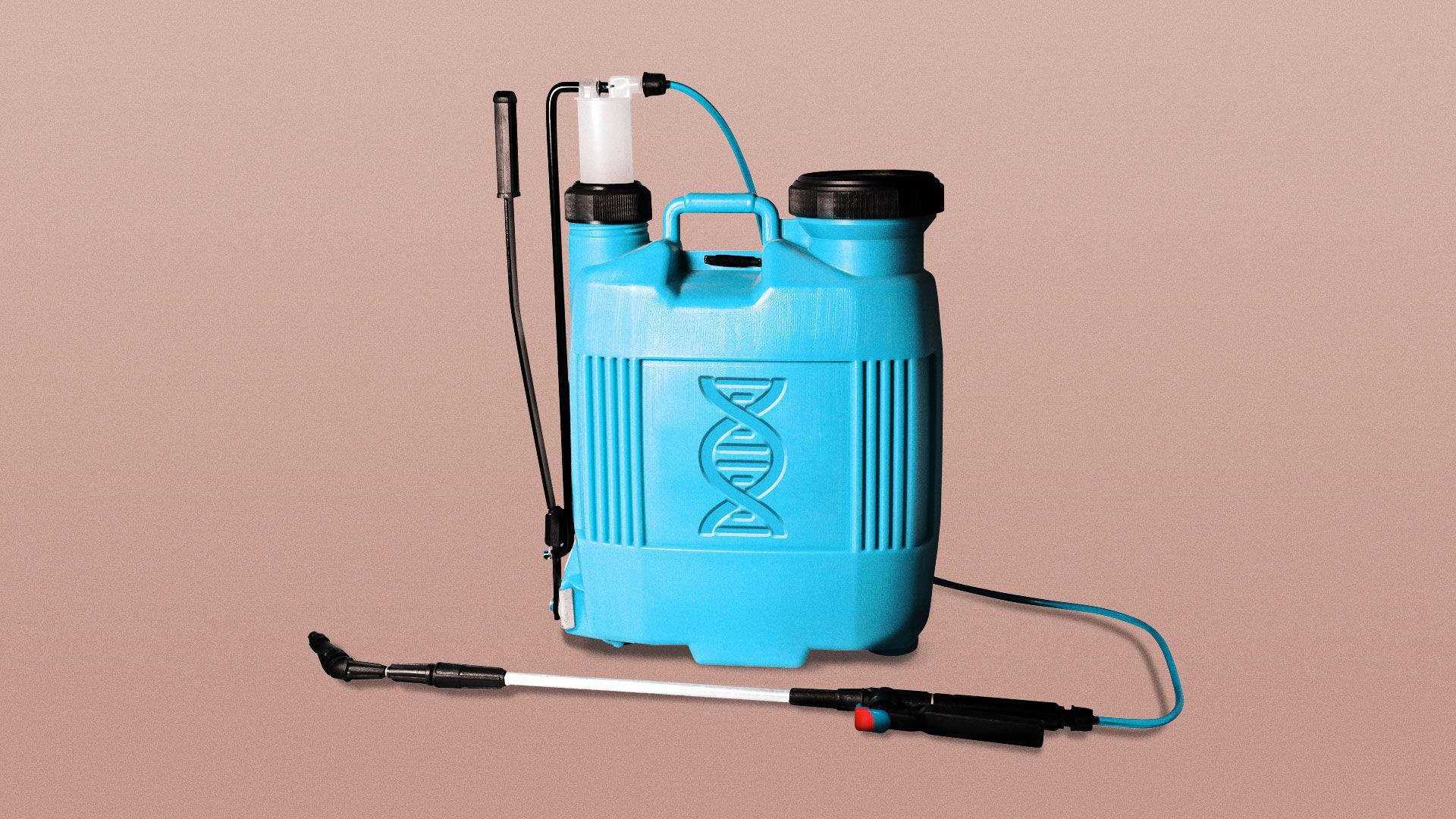Bioengineering more sustainable farming
Add Axios as your preferred source to
see more of our stories on Google.

Illustration: Eniola Odetunde/Axios
A startup is using the tools of synthetic biology to reduce the pollution involved in large-scale agriculture.
The big picture: We face two major challenges around farming: how to feed a still-growing global population, and how to do so without ruining the environment. Advances in synthetic biology could help us do both.
How it works: Joyn Bio, a joint venture between synthetic biology leader Ginkgo Bioworks and life sciences giant Bayer, is experimenting with engineering microbes that could help replace the synthetic fertilizer and chemicals used in conventional farming.
- The company is focusing first on developing custom microbes that could fix nitrogen in the soil to feed growing cereal crops like corn, what Joyn Bio CEO Michael Miille calls the "Holy Grail of agriculture."
Background: Plants need nitrogen to grow efficiently, but there's not enough naturally in soil to support the crops needed to feed a global population of nearly 8 billion people.
- The Haber-Bosch process to artificially fix nitrogen using fertilizer transformed agriculture — by one estimate only 4 billion people could be supported using natural fertilizer — but the energy intensity of the process contributes to climate change, while fertilizer runoff leads to water pollution and aquatic dead zones.
Details: Joyn Bio identifies natural microbes in the soil that show promise in fixing nitrogen and then "engineers them to perform at an entirely different level," says Miille.
- The company aims to engineer microbes that can fix nitrogen efficiently enough that synthetic fertilizer use could be cut by 30–50% without affecting crop yield.
- Miille says that currently, Joyn Bio's engineered microbes are efficient enough to reduce fertilizer use by 10% or so, though the company still needs to overcome regulatory hurdles and consumer acceptance before it could reach the marketplace.
"Agriculture needs innovation to be successful. The status quo is not going to get us there."— Michael Miille
